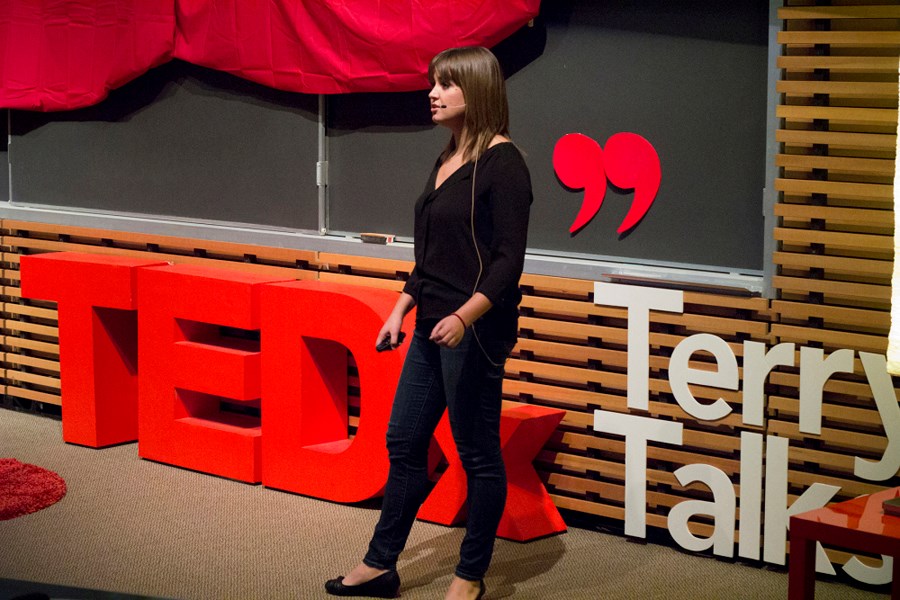Shannon Hoekstra has been working on her undergraduate degree for so long that she's now a sought-after speaker on the benefits of doing more than just focussing on the required course work.
Hoekstra, a 2007 D.P Todd grad and class valedictorian, will finally receive her engineering degree from UBC next year. During the recent TEDx Terry Talks at UBC, Hoekstra was one of a handful of students chosen to share her story and inspire fellow students, alumni, faculty and staff.
Hoekstra grew up in Prince George and was offered UNBC's scholars program award, which goes to the top student from each graduating class in Northern B.C. It includes full tuition and course fees for a bachelors degree but after two years focusing on physics, Hoekstra decided materials engineering was what she wanted to pursue, something UNBC does not offer, so she went to UBC in Vancouver to study materials engineering.
"Physics is pretty theoretical and I am more of a hands-on learner," said Hoekstra. "I knew I still wanted to do something with science, so I decided to study applied science, which is engineering."
Materials engineering is definitely not one of the more conventional types of engineering like civil or mechanical, she added. This branch of engineering focuses on finding the right materials and putting the right combination of materials together to get the best results for various projects.
Hoekstra will specialize in the processing side of materials engineering.
"Basically, how do you make nickel, how do you make copper into something usable for people - because you can't get a sheet of copper out of the ground," said Hoekstra. "There's a lot of chemistry that goes into the process."
Hoekstra's major was different but so was the lengthy path to finish her degree.
"The reason I wanted to talk about completing your degree in seven years was because there's this expectation that when you go to university you will - and should be - done in four years," she said. "Quite often when people hear I am taking seven years to complete my degree they are surprised and always ask me why. It was because I switched degrees and I did an engineering co-op where you can have work terms and that put it at six years and then it became seven when I was president of Engineers Without Borders last year."
UBC's Engineers Without Borders works to apply engineering ingenuity and problem solving to promote equal opportunities and provide aid to those in need around the world, similar to Doctors Without Borders. For example, the UBC branch of Engineers Without Borders focuses on repairing and monitoring wells in Africa, rather than building new ones.
While taking the leadership role of president of Engineers Without Borders, Hoekstra said she split the fourth years into two years to take the pressure off.
"During the talks I just really wanted to share the message with people that it's OK if you don't always follow the route you think you were going to or if you end up changing your mind, as long as you end up doing something you enjoy and learn something along the way, it doesn't matter in the scheme of life."



